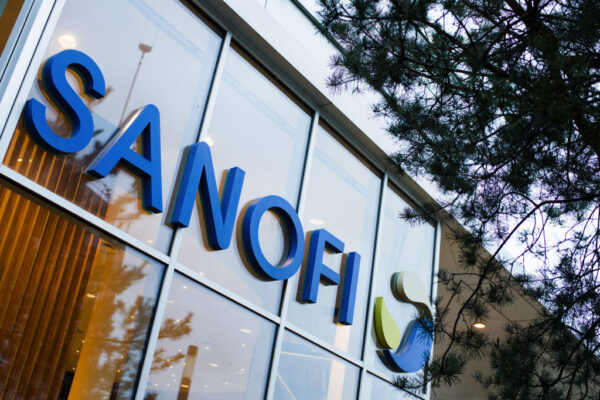
Bispecific antibodies first reached patients as cancer treatments, but a growing number of companies are working to expand these therapies to autoimmune diseases. Sanofi is adding a new contender, agreeing to pay $600 million for a bispecific drug with an approach that could be first in class.
The sum announced Thursday is an upfront payment for Dren Bio’s drug candidate, DR-0201. The privately held biotech, which is based in Foster City, California, could receive up to $1.3 billion more if the drug achieves development and product launch milestones.
Bispecific antibodies work by simultaneously binding to two targets, one on an immune cell and the other on the target cell. These drugs were initially developed to treat blood cancers by depleting cancer-driving B cells. But B cells also drive certain autoimmune disorders, making these rogue immune cells attractive for bispecific drug R&D.
On B cells, DR-0201 targets a protein called CD20. The drug leads to depletion of these cells via phagocytosis, a process in which an immune cell engulfs a pathogen, eliminating it. DR-0201 prompts this action by activating a specific phagocytic receptor on myeloid cells, a type of immune cell. Dren Bio contends this approach may offer safety and dosing advantages. The phagocytic receptor is activated only in the presence of the targeted antigen, so DR-0201 may be able to offer a wider therapeutic index and a superior safety profile compared to other targeted antibody therapies, such as T cell engagers (TCEs) and antibody drug conjugates (ADCs).
The Dren Bio drug is currently being evaluated in two Phase 1 studies, one in healthy volunteers and the other in a range of autoimmune diseases, such as lupus, Sjogren’s syndrome, dermatomyositis, and scleroderma. Dren Bio has not formally reported results from these studies, but Sanofi said recent data in the autoimmune disease study “suggest that deep B-cell depletion might have the potential to reset the adaptive immune system, leading to sustained treatment-free remission in patients with refractory B-cell mediated autoimmune diseases such as lupus, where significant unmet medical needs remain.”
In a prepared statement, Houman Ashrafian, Sanofi’s head of research and development, said DR-0201 has the potential to elevate the treatment effect for patients, particularly those who do not respond to existing therapies. Safety could be another key advantage. Leerink Partners analyst David Risinger said in a research note that clinicians have told the firm that safety is particularly critical for lupus patients. While B cells can be addressed by drugs that go after targets such as CD19 and BCMA, those therapies also affect plasma cells, which secrete antibodies important for immunity. Targeting CD20 spares plasma cells, so a CD20-targeting bispecific drug, such as DR-0201, should preserve a patient’s immunity and lower the risk of developing infections.
Sanofi’s DR-0201 acquisition is the latest in a line of deals for bispecific drugs for potential applications in autoimmune disease. Last summer, Merck agreed to pay $700 million up front for rights to a Curon Biopharmaceutical bispecific antibody with potential applications in oncology and immunology. Soon after, startup Candid Therapeutics launched with $370 million in financing and two in-licensed TCEs. Last October, GSK paid $300 million up front for rights to a TCE developed by Chimagen Biosciences. GSK was also involved in the formation of Ouro Medicines, a startup that launched in January with $120 million to reach the clinic with an in-licensed TCE.
The Sanofi pipeline currently lists one bispecific antibody, SAR446422. This drug, which is designed to target CD28 and the OX4O receptor, is in Phase 1 testing for potential applications in inflammation. Sanofi said it will finance the DR-0201 acquisition with its available cash. The deal, which is still subject to regulatory approvals, is expected to close in the second quarter of this year.
Photo: Nathan Laine/Bloomberg, via Getty Images










